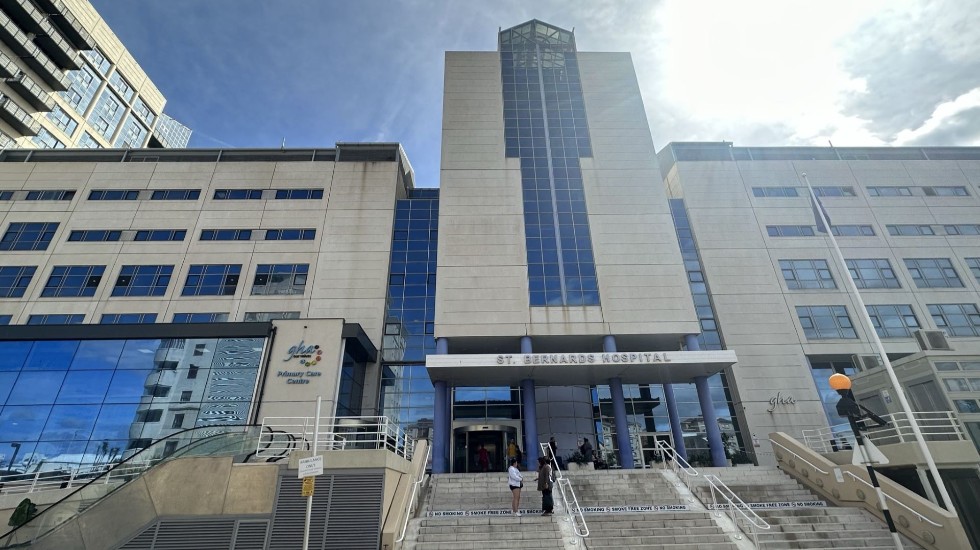Partnering on the route to net zero with Gibraltar Health Authority
By Philips editorial team ∙ Jun 16, 2025 ∙ 3 min read
How Gibraltar Health Authority (GHA) and Philips conducted a 360° Sustainability Assessment to kickstart their journey towards reducing carbon emissions and advancing GHA’s net zero goals.
Case study at a glance
Partner
Gibraltar Health Authority
Challenge
GHA wanted to kickstart its journey to reduce carbon emissions and advance its net zero goals.
Solution
As part of their 16-year strategic partnership, GHA and Philips conducted a 360° Sustainability Assessment, focusing on supply chain, medical equipment, and radiology operations.
Results
The results laid the foundation for GHA’s Green Plan, with a de-carbonization roadmap outlining key initiatives that GHA is actively implementing. These early steps highlight GHA’s commitment to sustainability and progress towards net-zero emissions.

The challenge
GHA and Philips share a commitment to enabling sustainable, high-quality healthcare that minimizes environmental impact. In line with net-zero ambitions of the UK and Gibraltar governments, GHA has set sustainability goals across energy, waste, travel, people, care, and supply chain. These efforts aim to reduce carbon emissions, air pollution, waste, and improve energy efficiency. As part of their 16-year strategic partnership, GHA and Philips conducted a 360° Sustainability Assessment, focusing on supply chain, medical equipment, and radiology operations. The results laid the foundation for GHA’s Green Plan, with a de-carbonization roadmap outlining key initiatives that GHA is actively implementing. These early steps highlight GHA’s commitment to sustainability and progress towards net-zero emissions.
Solution
Several key opportunity areas were identified, which GHA and Philips collaboratively prioritized, leading to the creation of sustainability charters for each. Some examples are highlighted below.
| Opportunity area | Expected impact |
| Supply Chain: Streamlined and data-driven procurement, supply chain processes and waste management on a hospital-wide level. | Effective usage and centralized management of stock will lead to reduced costs, while demonstrating best practice for sustainable procurement in the community. |
| Medical Equipment: Proactive maintenance of equipment and lifecycle management to optimize sustainable use of medical technology. | Newer equipment onboarded as part of long-term partnership will contribute to a 40% reduction in carbon over its lifetime. |
| Clinical Operations: Optimal and efficient use of equipment and consumables across the workflows. | Enhance operational efficiency for staff, streamline patient throughput, and reduce waiting lists and wait times, while increasing both patient and staff awareness of sustainable practices in consumable and equipment usage. |
At the Gibraltar Health Authority, we recognize the vital role we must play in reducing carbon emissions across Gibraltar, and we are well on our way to achieving net zero. While we had already implemented some initiatives, we sought to build on them by developing a Green Plan that drives meaningful change. Philips provided us with the critical insights we needed to take action – an essential step in our ongoing journey toward a sustainable, culture-driven transformation.
Results
The GHA team is already implementing the following initiatives: Reducing the amount of waste generated and reorganizing waste flows. A bigger focus on recycling and waste separation with new processes and bins has led to: Supply chain: Centralizing stock management using Omnicell to reduce over-ordering and stock expiration, introducing green procurement guidelines in line with the NHS in the UK, and streamlining supplier processes has resulted in:
Waste management:
The engagement of the GHA team has been instrumental to the success of this project. Together, we’ve transformed hypotheses into action, leveraging data to provide GHA with valuable insights and clear starting points. It’s inspiring to see the team taking ownership and actively implementing the identified opportunities. Through this collaboration, GHA has significantly increased its sustainability maturity and now has a solid foundation for its Green Plan in place. We’re excited to see what’s next
*Data on file, provided by the Gibraltar Health Authority. Results from case studies are not predictive of results in other cases. Results in other cases may vary.







